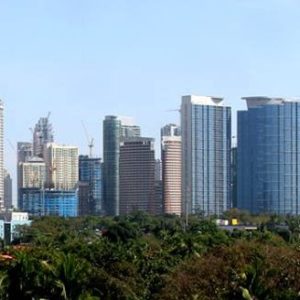REALTY-CONSTRUCTION | Immovable property, unused land taxes remain low, ADB says

The revenues that Cambodia has earned from immovable property and unused land taxes have remained low, which can be attributed to a low effective tax rate, narrow tax base and assessed property values being below the real property values, while the overall tax revenues have been achieved at a high level, said the Asian Development Bank (ADB).
A top official of ADB pointed out that there is significant revenue potential from immovable property and unused land taxes to augment domestic revenue mobilisation to meet increasing budget demand for a robust recovery in the near term and achievement of sustainable development goals—SGDs—in the longer term.
ADB Country Director for Cambodia Resident Mission Jyotsana Varma told Khmer Times in an exclusive email interview that Cambodia has adopted the concept of property tax and applied it well using a cautious approach while making continuous efforts to improve performance by focusing on administrative improvements and extension of tax base coverage.
“The collection of property taxes relies predominantly on self-assessment and self-declaration by taxpayers pending a fully developed individual billing system. Efforts are ongoing to develop linkages and data-sharing between government institutions responsible for property registration, valuation and the maintenance of property records which will have a positive impact,” said Varma.
Varma said further that the General Department of Taxation (GDT) has made significant efforts to strengthen property tax management by improving tax base coverage through street surveys and by providing taxpayer service, taxpayer education, and ease of payment to enhance voluntary compliance. While these measures have contributed to an increase in revenue collection, further enforcement can enhance the overall tax take, especially for unused land.
Effective property taxation depends on availability and access to comprehensive, reliable and accurate data on property ownership, land use, prices and valuation of properties and thus coordination is crucial among GDT, cadastral administration under the Ministry of Land Management, Urban Planning and Construction, and other relevant agencies, she added.
Varma also stated that there is also an important role for private sector partners such as real estate agents, property valuers, banks and lawyers or notaries as the newly established inter-ministerial commission on real estate data-sharing can play a vital role in strengthening property tax management in Cambodia, for instance, by improving GDT’s access to the land registry and cadastral index maps maintained by the cadastral administration.
In general that better property tax management can be achieved through: first, further strengthening legal and regulatory frameworks for property registration while enhancing institutional and administrative capacities, databases and analyses; and second, by identifying and designing a feasible and standardised property valuation mechanism consistent with regular updating of property valuation to optimise market value; third, implementing holistic approaches to improve coordination and data/information between relevant institutions to ensure smooth data flow for effective property registration and valuation; and fourth, strengthening technical skills and enforcement powers of relevant government officials.
Varma pointed out that global commitments in 2030 targets relate to SDG 16.3 on legal framework to ensure property rights, 16.10 on public access to information, and 17.1 on domestic resource mobilisation—DRM. The pressure created by the pandemic in decelerating aggregate economic growth in the region makes DRM an important agenda for countries to speed up recovery.
“Effective SDG localisation requires adequate financial capacities. In this context in Cambodia, immovable property and unused land taxes can play a key role in building institutional capacity of subnational administration,” said Varma, who declined to disclose the data on unused land in Cambodia as this information is for purposes of study and analysis.
.
 Ads by: Memento Maxima Digital Marketing
Ads by: Memento Maxima Digital Marketing
@[email protected]
SPACE RESERVE FOR ADVERTISTMENT


 Memento Maxima Digital Marketing
Memento Maxima Digital Marketing






